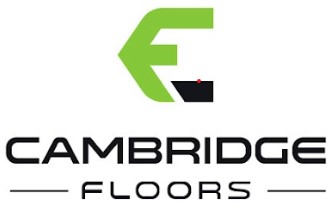Bringing timeless elegance to every space with its warmth
In the last decade or so, durable and easy-to-repair finishes have made hardwood floors long-lasting. Hardwood is an ideal choice for those who appreciate the warmth and value it adds to a home. Its ability to be refinished over the years and its resilience make hardwood a great option for various lifestyles in Vancouver and the Lower Mainland.

Did you know hardwood floors can feel warmer than other wood type floors?
From Europe to North America, hardwood floors have been a classic choice for colder climates to bring warmth to a space. With wood's natural ability to retain heat and act as an insulator it's prefect for the Canadian winters and not so mild fall's and springs'. Hardwood floors retain heat due to the thousand of air chambers within a cubic inch due to the natural characteristics of wood. This is unlike laminate and engineered hardwood that lack the density of chambers to create this effect. One downside to hardwood's ability to retain heat is the difficulty to find hardwood suppliers that warranty radiant heat beneath its hardwood whereas most tiles, engineered hardwood, luxury vinyl plank, and laminate do have warranties that cover radiant heat.



Hardwood Floors are Hypoallergenic
25% of Canadians have seasonal allergies. Hardwood floors unlike carpet doesn't trap allergens within its fibers. By having common allergens such as pollen, and animal dander not attached to your floors, the air systems within your house can collect and trap the allergens and take them out of your home. Let your space be a haven from the outside world.
Hardwood vs Engineered
Hardwood Flooring
Hardwood Flooring is just that – a solid piece of wood from inside out. Solid hardwood flooring comes from milled solid lumber and is available in unfinished or pre-finished forms. Unfinished solid wood floors need to be sanded on-site and refinished after installation. Pre-finished solid are installation ready and do not require additional preparation. Hardwood has a greater margin of error for restoration and can have the finish changed more often to fit the style and trends of the decade.
Engineered Hardwood Flooring
Engineered hardwood flooring is manufactured with a real wood surface and several layers of different laminate or wood veneers. Unlike Hardwood Flooring, engineered flooring is moisture-resistant and suitable for basements. Both solid and engineered hardwood flooring is durable and long-lasting but engineered flooring is exceptionally strong thanks to its laminated layers. Engineered hardwood can't be sanded as many times as hardwood can and needs to be done by a professional to prevent gouging of the hardwood veneer that can reveal the plywood or laminate core underneath.
Hardwood and its Different Species
All the facts, simplifed
Oak Hardwood:
Oak is the most popular choice of hardwood,
Red Oak: A classic choice, with red oak having a warm, reddish undertone and a well defined grain pattern. With an average janka rating of 1250, red oak is durable enough to face the daily life of a busy lower mainland family.
White Oak: As the name states, white oak is a light colour that ranges from white to a very pale yellow with a less pronounced grain pattern in comparison to red oak. White oak is a popular hardwood due to its ability to be stained a variety of colours and its durability with an average Janka rating of 1360.
Maple Hardwood:
Maple hardwood is a popular, yet classic hardwood that has a light, almost creamy colour, and when paired with its smooth grain pattern, gives your hardwood floors a sleek, modern look. With Maple’s Janka rating of 1450, its hardier to scratches in comparison to Oak hardwood.
Walnut Hardwood:
Walnut is a classic hardwood that is primarily known for two of it’s species, Brazilian (Ipe) and American walnut.
Ipe is a critically endangered hardwood and 75% of harvested wood is done illegally. Ipe hardwood itself is linked to health and breathing issues with its dust and is not recommended to be sanded without proper ventilation and PPE. Ipe is ridiculously strong with an average Janka rating of 3684. With it’s dark colour the colour is well sought after.
American Walnut is much softer than Ipe, with a Janka rating of 1010, however, it’s deep, rich chocolate colour paired with its wavy grain pattern creates a unique look and depth to a space.
Acacia Hardwood:
Acacia is a harder hardwood to find, but is a unique hardwood that has a reddish-brown, orange undertone with a well defined grain pattern. The average Janka rating of 1160 for Acacia and its ability to retain heat makes a great choice for those wanting a more varied, eclectic look.
Cherry Hardwood:
Brazilian cherry was extremely popular during the early 2000’s (the red floors most homes had was most commonly Brazilian cherry). Brazilian cherry is considered unethical today to produce due to clear cut foresting in the Amazon, with 90% of produced hardwood deemed done so illegally. This makes sourcing ethical Brazilian Cherry difficult. This cherry can be identified by its deep, red tone and smooth, fine grain. With a Janka rating of 2350, the Brazilian cherry could withhold the busy lifestyles and humidity of the lower mainland and west coast.
American Cherry was a less popular option of hardwood with its low Janka rating of 950. This is a more ethical option of cherry if you’re looking for the deep, and rich red colour of Brazilian cherry without the fear of deforestation.
Hickory Hardwood:
A less common hardwood, but well loved for it’s rustic charm. Hickory is perfect for the farmhouse and eclectic home. As one of the hardiest domestic wood with a Janka rating of 1820, this hardwood is perfect for the household with pets and children. Ranging in colours from light to dark, it can be made to match your space.

